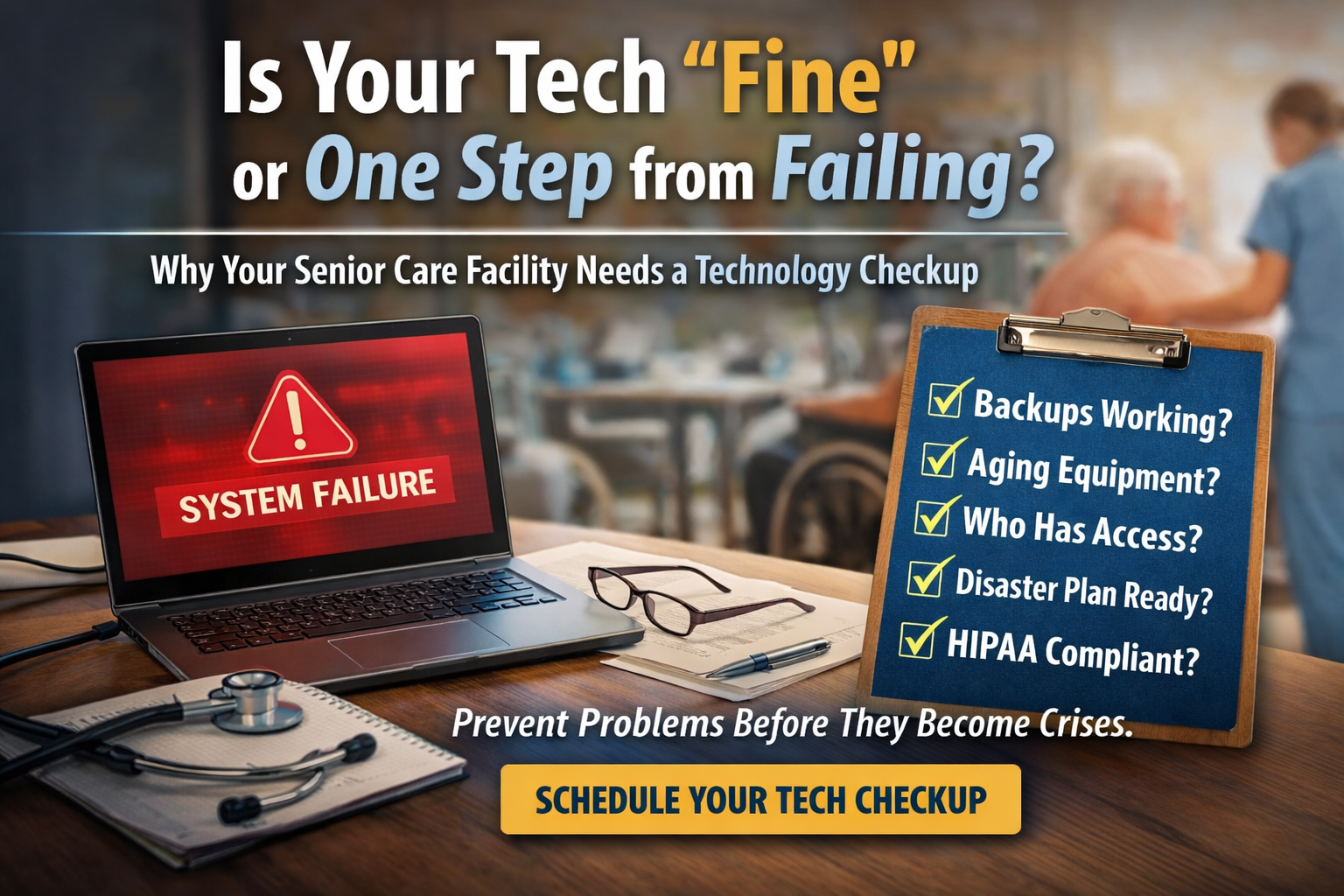Power outages, ransomware attacks, and natural disasters don’t schedule appointments. When they hit, they can shut down your operations, cost you thousands, and permanently damage your reputation.
Yet too many small and mid-sized businesses (SMBs) rely solely on backups and assume they’re covered.
Here’s the truth: a backup isn’t a business continuity plan. And if your IT provider isn’t preparing you for the worst, you’re gambling with your business.
What Is Business Continuity — and Why Backups Aren’t Enough
Yes, data backups are important. But they’re just one piece of a much bigger puzzle.
A Business Continuity Plan (BCP) is a comprehensive strategy that ensures your business can keep running during and after a disruption. It’s not just about recovering data — it’s about keeping employees productive, clients supported, and systems online when disaster strikes.
Backups vs. Business Continuity: Key Differences
Backups Business Continuity Restores your data Keeps your business operational Often stored locally Includes off-site/cloud redundancy May take hours or days to restore Includes rapid recovery strategies (RTO/RPO) Doesn’t address remote work Includes remote work readiness No testing = no guarantees Includes regular disaster simulations
If your IT provider can’t clearly explain how fast you’ll recover, how your team will work remotely, or what systems are most critical — you don’t have continuity, you have wishful thinking.
Real Disasters. Real Businesses. Real Consequences.
Think it won’t happen to you? Think again. Here are real-world examples of what can (and does) go wrong:
- 🌀 Hurricanes in Florida: Knocked out power and internet across regions. Companies without cloud systems were paralyzed.
- 🌊 Flooding in North Carolina: Destroyed local servers and wiped out months of client data and invoices.
- 🔥 Wildfires in California: Obliterated physical offices. Businesses without off-site backups lost everything.
- 💻 Ransomware attacks: Crippled small businesses that thought their backups were safe — but weren’t encrypted, tested, or recent.
Disasters like these don’t just target enterprises. They hit SMBs every single day. And the impact can be fatal without a plan in place.
5 Business Continuity Questions Every SMB Should Ask Their IT Provider
If a fire, flood, or cyberattack struck tomorrow, could your business continue to serve clients?
Ask your IT partner:
- How quickly can we recover from a ransomware attack?
- Are our backups encrypted, off-site, and regularly tested?
- What happens if our physical office becomes inaccessible?
- Can our team work remotely without missing a beat?
- Does our continuity plan meet industry compliance requirements (e.g., HIPAA, PCI, GLBA)?
If they can’t answer confidently — or if you’ve never asked — your business is exposed.
Business Continuity Is a Competitive Advantage
Downtime is expensive. But continuity gives your business:
- ✅ Faster recovery from disruptions
- ✅ Stronger cybersecurity posture
- ✅ Client trust and retention
- ✅ Better compliance with regulations
- ✅ Peace of mind in the face of the unexpected
Great IT providers don’t just back up your data — they back up your business.
Ready to Protect Your Business from the Unexpected?
Don't wait until disaster strikes to find out you weren’t ready. Let us assess your vulnerabilities and design a business continuity plan tailored to your unique needs.
👉 Book your free business continuity assessment now
Let’s make sure a small disruption never turns into a major disaster.
















